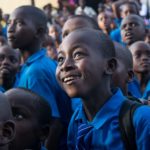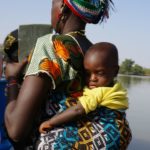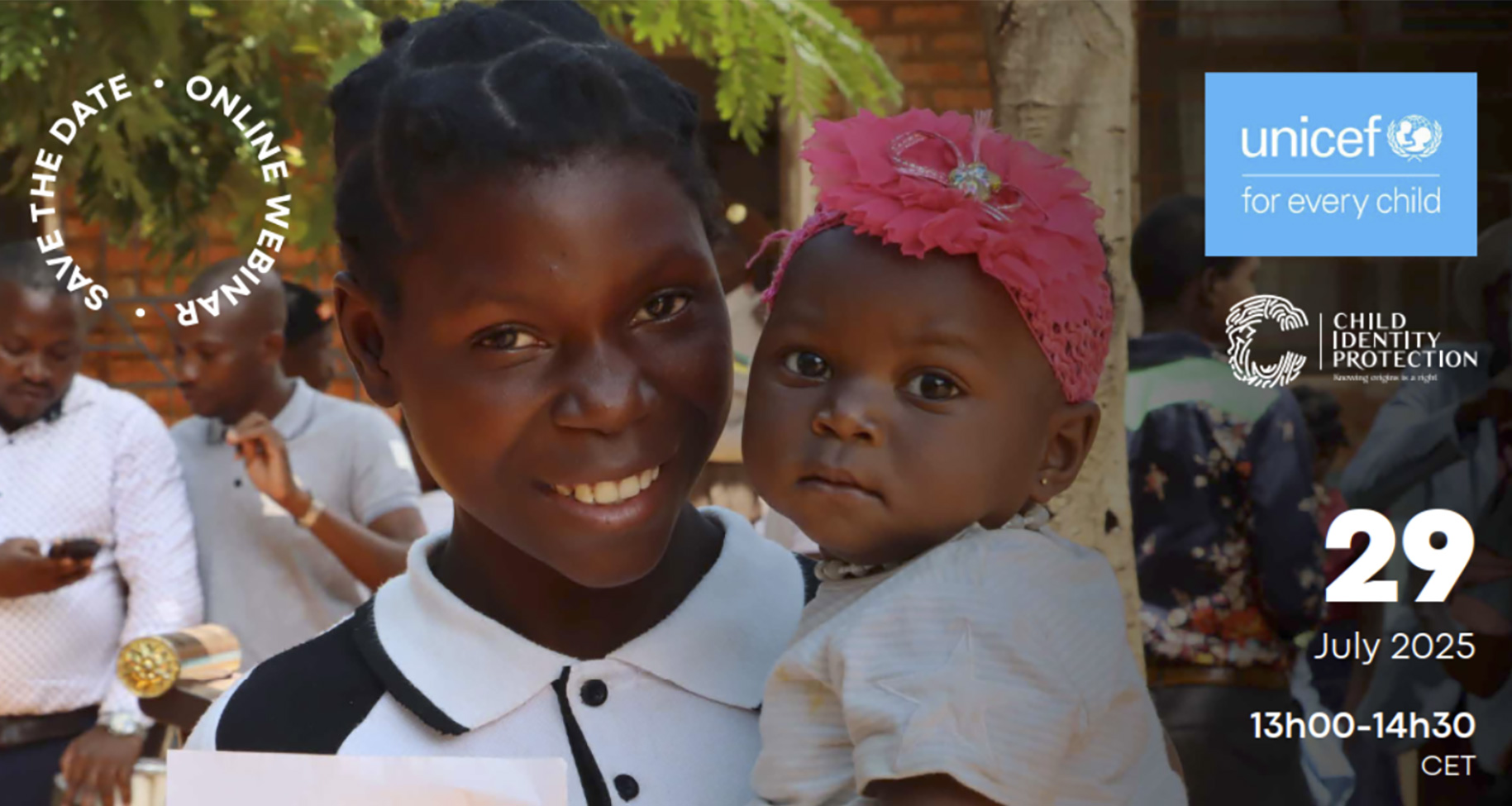
Invitation: Webinar launch of Strategic programme framework on Strengthening Civil Registration and Vital Statistics in Eastern and Southern Africa
REGISTRATION
OVERVIEW
When: 29 July, 14h – 15h30 EAT, 13h00 – 14h30 CET
Register now: https://us02web.zoom.us/webinar/register/WN_wBVMJKnfQQ2W9pM_gDSz9w
Millions of children in Eastern and Southern Africa remain invisible in official systems, denied the legal identity that unlocks access to education, healthcare, and protection. The Strategic Programme Framework for Strengthening Civil Registration and Vital Statistics (CRVS) offers a bold, evidence-driven roadmap to close this gap.
Grounded in regional realities and aligned with global and African commitments, including SDG 16.9, Agenda 2063, the African Union Digital Transformation Strategy, and UNICEF’s contribution to Africa’s Development Agenda, the framework focuses on three accelerators: interoperability, decentralization, and digitalization. These are key to building inclusive, efficient, and sustainable CRVS systems that reach every child, including the most vulnerable.
Listen to leading experts explain how concrete country examples from the ground demonstrate how these three accelerators operate to ensure that every child has a legal identity in the region.
- Isabel MAGAYA – Programme Manager, Children and the Law, African Child Policy Forum (moderator)
- Alison PARKER – Deputy Regional Director, UNICEF ESARO
- Timothy. P.T EKESA – CRC Committee member
- Karoonawtee chooramun, Special Rapporteur on Birth Registration, Name and Nationality in Africa, ACERWC
- Governments (2 or 3 tbc)
- William Muhwava – Chief of Populations and Youth, UN ECA
- Nankali Maksud – Regional Advisor Child Protection, UNICEF ESARO
Quand : Le 29 juillet, 14h-15h30 EAT, 13h-14h30 CET
Inscrivez-vous : https://us02web.zoom.us/webinar/register/WN_wBVMJKnfQQ2W9pM_gDSz9w
Des millions d’enfant en Afrique de l’Est et australe demeurent invisibles dans les systèmes officiels, privés d’identité juridique essentielle pour accéder à l’éducation, aux systèmes de santé et à la protection. Le cadre stratégique pour le renforcement de l’enregistrement des faits d’état civil et des statistiques vitales (CRVS) propose une feuille de route ambitieuse et fondée sur des données probantes pour combler cette lacune.
Ancré dans les réalités régionales et aligné sur les engagements mondiaux et africains, dont l’ODD 16.9, l’Agenda 2063, la Stratégie de transformation numérique de l’Union africaine et la contribution à l’UNICEF à l’agenda de développement de l’Afrique, ce cadre repose sur trois leviers clés : l’interopérabilité, la décentralisation et la numérisation. Ces leviers sont essentiels pour construire des systèmes CRVS inclusifs, efficaces et durables qui atteignent chaque enfant, y compris les plus vulnérables.
Écoutez les interventions de spécialistes de premier plan qui expliquent, à partir d’exemples concrets recueillis sur le terrain, comment ces trois leviers fonctionnent pour garantir que chaque enfant dispose d’une identité juridique dans la région :
- Isabel MAGAYA – Programme Manager, Children and the Law, African Child Policy Forum (moderator)
- Alison PARKER – Deputy Regional Director, UNICEF ESARO
- Timothy. P.T EKESA – CRC Committee member
- Karoonawtee chooramun, Special Rapporteur on Birth Registration, Name and Nationality in Africa, ACERWC
- Governments (2 or 3 tbc)
- William Muhwava – Chief of Populations and Youth, UN ECA
- Nankali Maksud – Regional Advisor Child Protection, UNICEF ESARO
Cuando : El 29 de julio, 14h-15h30 EAT, 13h-14h30 CET
Inscríbete ahora : https://us02web.zoom.us/webinar/register/WN_wBVMJKnfQQ2W9pM_gDSz9w
Millones de niños y niñas en África oriental y meridional siguen siendo invisibles en los sistemas oficiales, privados de una identidad jurídica que les permitiría acceder a la educación, a servicios de salud y a la protección. El marco estratégico para el fortalecimiento del registro civil y las estadísticas vitales (CRVS) propone una hoja de ruta ambiciosa y basada en evidencia para cerrar esta brecha.
Basado en realidades regionales y alineado con los compromisos mundiales y africanos, incluyendo el ODS 16.9, la Agenda 2063, la Estrategia de Transformación Digital de la Unión Africana y la contribución de UNICEF a la Agenda de Desarrollo de África, el marco se centra en tres pilares clave : interoperabilidad, descentralización y digitalización. Estos elementos son fundamentales para construir sistemas CRVS inclusivos, eficaces y sostenibles, que lleguen a todos los niños y niñas, incluidos los más vulnerables.
Escucha a destacados expertos explicar, a través de ejemplos concretos desde el terreno, como estos tres pilares funcionan para garantizar que cada niño tenga una identidad jurídica en la región :
- Isabel MAGAYA – Programme Manager, Children and the Law, African Child Policy Forum (moderator)
- Alison PARKER – Deputy Regional Director, UNICEF ESARO
- Timothy. P.T EKESA – CRC Committee member
- Karoonawtee chooramun, Special Rapporteur on Birth Registration, Name and Nationality in Africa, ACERWC
- Governments (2 or 3 tbc)
- William Muhwava – Chief of Populations and Youth, UN ECA
- Nankali Maksud – Regional Advisor Child Protection, UNICEF ESARO
SPEAKERS

Isabel MAGAYA (moderator)
Programme Manager, Children and the Law
African Child Policy Forum
Isabel has worked extensively in advocating for universal birth registration and the rights of undocumented migrant children. Currently, Isabel is the manager for the Children and Law Programme at a Pan African think tank-African Child Policy Forum, based in Addis Ababa, Ethiopia where she leads strategic initiatives on child rights governance and justice reform. Her work has been instrumental in shaping policies, laws and practices across Africa, including advancing legislative frameworks and advocacy strategies to protect vulnerable children. Isabel is also an External Expert to the African Committee of Experts on the Rights & Welfare of the Child’s Working Group on Children’s Rights and Business. Isabel studied law at the University of Pretoria, South Africa and she holds a Master’s Degree in Child law and is currently completing her Doctoral Degree on children’s rights.
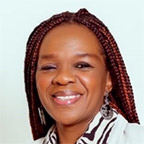
Alison Parker
Deputy Regional Director, UNICEF ESARO
Alison is the Deputy Regional Director for UNICEF in Eastern and Southern Africa. She leads a team of technical advisors supporting 21 country offices in program development, implementation, and policy guidance. Alison boasts over 25 years’ experience in diverse humanitarian and development settings across Africa, the Middle East, South Asia, and Latin America.
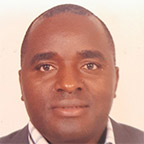
Timothy. P.T EKESA
CRC Committee member
Timothy Ekesa has over 29 years of experience as a leading child rights activist advocating for children rights and child protection in Kenya, regionally and globally.
He is the Executive Director of Kenya Alliance for Advancement of Children (KAACR), an umbrella membership NGO of 250 CSOs in Kenya and with Special Consultative Status) with ECOSOC (UN), Observer Status with African Committee on of Experts on Rights and Welfare of Children (ACERWC) and local partner of ECPAT International.
Mr. Ekesa is currently one of the 18 Experts on the UN Committee on the Rights of the Children, in OHCHR, Geneva Switzerland.
He has led national state party periodic reports and CSO supplementary reporting process on implementation of UNCRC & African Charter on the Rights & Welfare of Children (ACRWC) processes in Switzerland & Ethiopia respectively since 1997. He led a meaningful child participation in CRC reporting process during 44th Session of CRC when Kenya presented the 2nd State Party report of Kenya in 1998 – 2004.
He is one of 20 child advocates from 20 countries at A20 Global Leadership Summit on Child Advocacy 2019 in Beijing, China.
He served as a member of the 5-person ECPAT International Global Supervisory Board
He is a founding Director of 14-country Eastern Africa Child Rights Network (EACRN)
He is a founding Director of Child Line Kenya, Child Helpline 116
He has served as a member of the National Council for Children Services (NCCS), Ministry of Labour Social Security and Services and Vice Chairperson of Elimu Yetu Coalition (Educational Advocacy and pressure lobby group).
He has published several publications on children rights, child protection, child labour, child rights governance and child participation.
He holds Masters of Science Degree in Organizational Development (USIU), continuing Masters of Arts International Relations & Diplomacy (UON), Bachelor of Arts Degree in communication with minor in Community Development from Messiah College through (Daystar University), Post graduate Diploma in Management and Development of NGOs from Galile college, Israel and certificate in magazine editing & production (Daystar University).
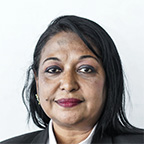
HON. Karoonawtee CHOORAMUN
Special Rapporteur on Birth Registration,
Name and Nationality in Africa, ACERWC
Hon. Karoonawtee Chooramun has served as a Member of the African Committee of Experts on the Rights and Welfare of the Child (ACERWC) since March 2021. She is the Special Rapporteur on the Right to Name, Birth Registration, and Nationality, where she champions every child’s right to legal identity through birth registration and nationality, and works to combat statelessness across the continent. As Special Rapporteur, Hon. Chooramun advocates for the universal registration of births, which is essential for a child’s legal identity and the realization of many other rights. Her work also involves tackling challenges related to statelessness and ensuring that children can acquire nationality, thereby securing their rights and participation in society. She also serves as Country Rapporteur for Angola, Burundi, the Central African Republic, the Republic of Congo, and Zimbabwe, monitoring child rights policies and advising on improvements. In addition, she is a member of the Working Group on Business and Children’s Rights, focusing on the impact of corporate practices on child welfare, including child labor and corporate responsibility.

William MUHWAVA
Chief of Populations and Youth, UN ECA
William Muhwava is the Chief of Demographic and Social Statistics Section at the African Centre for Statistics of the United Nations Economic Commission for Africa. He holds a Doctorate in Medical Demography from the London School of Hygiene and Tropical Medicine, University of London. He is a Demographer and has worked with national statistical offices, universities and international organizations. In his current capacity, he leads the section that has the core functions of supporting countries in the collection, production, analyses and use of demographic and social data collected through censuses, civil registration, population registers and household surveys. He is coordinating the Africa Programme for Accelerated Improvement for Civil Registration and Vital Statistics (APAI-CRVS) which has the objective to provide management and programmatic guidance to the African agenda of reforming and improving CRVS systems. The regional programme provides guidance on the institutional and operational linkages, workflows and results management mechanisms in a more comprehensive and holistic manner, encompassing the inter-disciplinary and inter-sectoral interfaces of CRVS systems. He also coordinates the implementation of United Nations Legal Identity Agenda, aimed at establishing a mechanism for conferring legal identity to all in a continuous, universal and inclusive manner, from birth to death. Currently, the work has been extended to include the United Nations Legal Identity Agenda and National Population Registers. He coordinates the Africa Census Program.
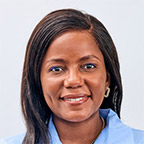
Nankali MAKSUD
Regional Advisor Child Protection,
UNICEF ESARO
Nankali Maksud is the Regional Advisor for Child Protection at UNICEF Eastern and Southern Africa, where she leads UNICEF’s regional agenda to strengthen child protection systems across 21 countries. With over 20 years of experience in both development and humanitarian contexts, she has championed sustainable reforms in child protection, with a particular focus on legal identity, violence prevention, and protection of vulnerable children.
- 27 June 2025


